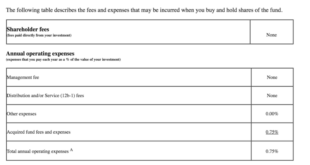Mortgage Broker Standards: Comprehensive Guide to Excellence. When choosing a mortgage broker, understanding the standards that define their professionalism and expertise is crucial. This guide explores key aspects of mortgage broker standards to help you make informed decisions.
Introduction: The Importance of Mortgage Broker Standards
Mortgage brokers play a vital role in connecting borrowers with suitable lenders, making it essential to know the benchmarks for evaluating their services. Adhering to industry standards ensures quality service, transparency, and ethical practices.
What Are Mortgage Broker Standards?
Mortgage broker standards refer to the guidelines and principles brokers must follow to deliver professional, ethical, and effective services. These standards cover:
- Licensing and certification
- Adherence to legal and ethical guidelines
- Knowledge of financial products
- Transparent communication
Key Standards for Mortgage Brokers
- Licensing and Certification
Brokers must be licensed in their operating region. Certification from reputable organizations adds credibility. - Ethical Practices
Upholding honesty, integrity, and transparency is non-negotiable. Ethical brokers avoid conflicts of interest and provide unbiased advice. - Extensive Market Knowledge
A competent broker understands current market trends, lending options, and financial products. - Clear Communication
Brokers should explain complex terms in layman’s language, ensuring clients understand the loan process. - Customized Services
Tailoring loan solutions to clients’ financial needs is a hallmark of a top-tier broker. - Continuous Education
Staying updated on industry changes, regulations, and market trends is essential. - Fee Transparency
A professional broker discloses all costs upfront without hidden charges. - Strong Network
Brokers with a wide lender network offer clients more options and better rates. - Compliance with Regulations
Adhering to local, state, and national lending laws protects clients from unethical practices. - Exceptional Customer Service
Responsive and approachable brokers build long-term trust with their clients.
How to Identify a Mortgage Broker Meeting Industry Standards
- Check Credentials: Verify licenses and certifications.
- Read Reviews: Online reviews and testimonials provide insights into their reputation.
- Ask Questions: A reliable broker willingly answers all queries.
- Compare Options: Evaluate brokers based on services, fees, and client satisfaction.
Benefits of Working with a Standard-Compliant Mortgage Broker
- Increased Trust: You can rely on their expertise and integrity.
- Access to Better Deals: Brokers with strong networks secure competitive rates.
- Simplified Process: They handle paperwork, negotiations, and follow-ups.
- Avoidance of Pitfalls: Compliance with regulations minimizes risks.
10 Tips for Choosing the Right Mortgage Broker
- Verify their license with local authorities.
- Check if they specialize in your loan type (e.g., first-time buyer, refinance).
- Look for brokers affiliated with industry associations.
- Ask about their lender network size.
- Request detailed fee structures.
- Check how they communicate updates during the process.
- Read reviews on third-party platforms.
- Look for brokers with at least five years of experience.
- Ask about their approach to rate negotiation.
- Seek recommendations from trusted friends or family.
10 Frequently Asked Questions (FAQs) About Mortgage Broker Standards
- What qualifications should a mortgage broker have?
A mortgage broker should have a valid license, certification, and industry experience. - Why is licensing important?
Licensing ensures brokers meet legal and professional standards. - Can I work with an unlicensed broker?
No, it poses risks like fraud and lack of accountability. - What fees should I expect from a broker?
Common fees include application, origination, and service fees. - How do brokers get paid?
They earn through lender commissions or client fees. - What is a conflict of interest in mortgage brokering?
When a broker prioritizes personal gain over client needs. - Do all brokers have access to the same lenders?
No, their lender network varies based on partnerships. - Can I negotiate broker fees?
Yes, some brokers are open to fee negotiation. - How do brokers maintain ethical practices?
By adhering to industry codes of conduct and legal guidelines. - What should I do if a broker violates standards?
Report them to the licensing authority or industry regulator.
Conclusion: Choosing the Right Mortgage Broker
Adhering to mortgage broker standards is key to ensuring ethical and professional service. By understanding these benchmarks, you empower yourself to make confident decisions when selecting a broker. Selecting a standard-compliant broker simplifies your home-buying journey, reduces risks, and ensures you secure the best possible loan for your needs. Prioritize brokers who demonstrate transparency, expertise, and a commitment to excellence.
 mortgage.kbk.news
mortgage.kbk.news
